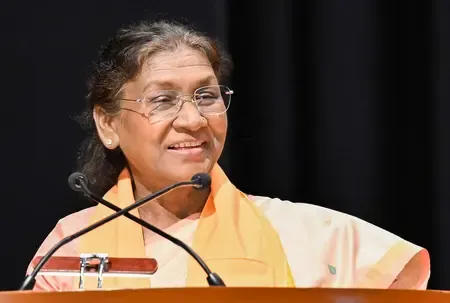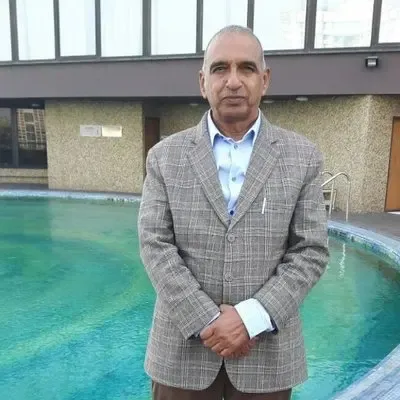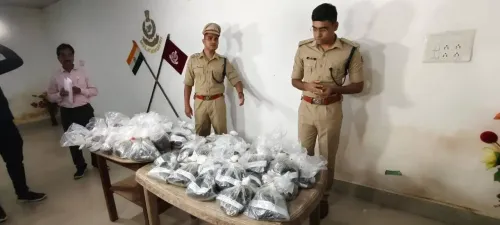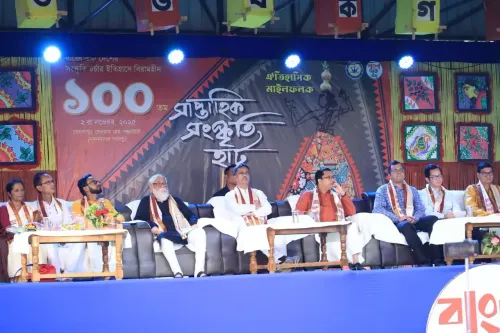Election Commission of India Advances Linking Voter IDs with Aadhaar
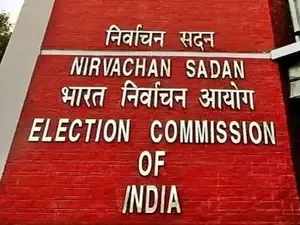
Synopsis
Key Takeaways
- Linking voter ID and Aadhaar aims to enhance electoral integrity.
- Meeting included key officials and technical experts.
- Voluntary provision of Aadhaar numbers for identity verification.
- Political parties invited to submit feedback by April 30.
- ECI emphasizes legal compliance in electoral processes.
New Delhi, March 18 (NationPress) In an effort to eliminate ineligible voters, including illegal Bangladeshi immigrants, the Election Commission of India announced on Tuesday its decision to proceed with the integration of voter ID cards and Aadhaar cards following discussions with UIDAI experts.
Chief Election Commissioner Gyanesh Kumar, accompanied by Election Commissioners Dr. Sukhbir Singh Sandhu and Dr. Vivek Joshim, convened a meeting on this topic with the Union Home Secretary, Secretary of the Legislative Department, Secretary of MeitY, and CEO of UIDAI, along with the technical specialists from the ECI.
According to a statement, “While Article 326 of the Constitution of India stipulates that voting rights are reserved for Indian citizens, an Aadhaar card solely verifies a person's identity. Therefore, it was resolved that the linking of EPIC with Aadhaar will be conducted in accordance with Article 326 of the Constitution, as well as Section 23(4), 23(5), and 23(6) of the Representation of the People Act, 1950, and in alignment with the Supreme Court ruling in WP(Civil) No. 177/2023.
Consequently, technical discussions between UIDAI and the ECI technical team will commence shortly, it added.
This meeting occurs amidst accusations from Rahul Gandhi, the Leader of Opposition in Lok Sabha, and Mamata Banerjee, Chief Minister of West Bengal, regarding the presence of fraudulent and duplicate names in the voter lists.
Currently, there exists no legal requirement for voter rolls to be integrated with the Aadhaar database. Voters are anticipated to voluntarily provide their Aadhaar number to election officials to confirm their identity.
The meeting seems to be a follow-up to the ECI’s earlier outreach for suggestions from all national and state political entities to bolster the electoral process.
The poll body has set April 30 as the cut-off date for political parties to present their feedback on any outstanding matters at the level of Electoral Registration Officers (ERO), District Election Officers (DEO), or Chief Electoral Officers (CEO), as applicable.
The ECI noted it has dispatched individual letters to political parties soliciting their perspectives and has also suggested direct discussions with party leaders at a mutually agreeable time. This initiative is intended to improve electoral methodologies while ensuring adherence to the established legal framework.
This initiative follows a recent conference where CEC Gyanesh Kumar instructed officials, including CEOs, DEOs, and EROs across all states and union territories, to maintain ongoing dialogues with political organizations.
He also directed them to address suggestions received in these discussions strictly within the prevailing legal parameters and to submit an action report by March 31.
Political parties represent one of 28 primary stakeholders identified by the Commission under the Constitution and statutory framework governing various aspects of the electoral process.

